- Учителю
- Конспект урока окружающего мира во 2 классе «В березовой роще»
Конспект урока окружающего мира во 2 классе «В березовой роще»
Municipal budget educational institution Muslyumovsky Lyceum Muslyumovsky municipal district of the Republic of Tatarstan
Flow chart of the world a lesson in class 2a
Teacher: Karzhavkina Alfiya Ahtamovna, primary school teacher of the highest qualification category
topic
In the world of wildlife. In the birch grove.
goal
To acquaint students with typical plants and animals birch forest, to expand and deepen children's knowledge about animals and plants; Skill form of a book.
tasks
Education: an idea about the relationship between the components of birch wood (plants, animals, environmental conditions).
developing: develop attention, memory, thinking, imagination, cognitive activity of students.
Educational: nurture a love of nature, respect for her.
basic Concepts
Birchwood, environment, adaptation of plants and animals to life
resources:
- basic
- more
G.G.Ivchenkova, I.V.Potapov "Environment" class 2, EMC "Planet of Knowledge"
Multimedia projector, screen, individual cards, Whatman, drawings
organization of space
Front work, work in pairs, group work, individual work
phase of the lesson
teacher activity
student activities
Assignments for students, which will lead to the achievement of planned results
Expected Outcomes
ECU
I. To self-determination activities
Purpose.
Inclusion of children in the activity of student-significant level.
2 min
Motivates students to work.
Welcome teachers. Welcome partner in the face and shoulder.
Risen sun a long time,
Peered into our window.
Hurry up soon in class
Interestingly we have here!
Welcome the partner in the face, shoulder, wish my team good lesson.
Regulatory ECU: development motives of educational activities. ECU communication: planning of educational cooperation with the teacher and peers.
ECU personality: self-determination.
II. updated knowledge
Purpose.
Repetition of learned material needed for the "discovery of new knowledge"
5 min
Instructs students.
1.Molcha, mixed with music.
2. Stand in a pair with the closest disciple and give "five" (when the teacher says "Stand in pairs"). If you can not find a pair, raise their hand.
3. After asking teachers to think 3-5 seconds.
4. Share their views using: Rally Robin
5. Thanks for the interesting answer.
Guys, we began to explore the theme "In the world of nature," and what is "wildlife"? And what is "inanimate nature"?
Guys, let's remember what we talked about in the last lesson.
-What conditions are necessary for the life of the plants?
-What are insects?
-Do all insects are beneficial?
Mix-Pair-Share
1. What animals live in the woods?
2. What trees grow in our forests?
ECU communication: the ability to execute their ideas orally with sufficient completeness and accuracy of thought.
Educational ECU: the ability to find the answer.
Regulatory ECU: the ability to express their opinions.
III. Learning tasks
Purpose.
Explore the textbook material, the main highlight.
10 min
Organizes the textbook: students with reading teacher comments.
Read textbook p.36-37
Indeed, in our forests growing a large number of trees. And what a tree is a symbol of Russian nature. It is also called "Russian beauty."
That's right, guys, it's our belostvolnaya birch.
Let's open with you a tutorial on page 36 and find out what to do next in the forest, our heroes Nikolai Ivanovich, Mary and Peter.
Slides 1, 2, 3, 4
Regulatory ECU: goal setting.
Educational ECU: general educational - formulation of cognitive goals, search and allocation of the necessary information
IV. "Discovery" of new knowledge students
Purpose.
Taught to apply their knowledge in practice.
10 min
Instructs students.
Organize the work of the students in the picture.
1 student-fan keeps the card and says "Choose any card"
2 learner selects and reads mystery gives a reflection 5 seconds.
3 student - is responsible
4 student - or praises helps sticks Reply drawing the picture.
Change roles.
So, we, together with Nikolai Ivanovich visited with you in the birch forest. This is usually called the forest grove. After walking around Peter and Mary painted figure, but did not have time to paint.
Look guys on this picture? What is it?
Let us help Masha and Petya. To do this, open the envelope number 1 and get cards with riddles.
Fan-N-Pick
Puzzles on the cards. (Appendix 1)
Regulatory ECU: the ability to express their assumption.
ECU personality: the ability to be aware of the difficulties and the desire to overcome them
V. Work on the picture
Purpose.
Determine the relationship of animals, plants and environmental conditions in a birchwood
5 min
Organizes the picture
nswer the teacher's questions, using markers note in the picture the relationship of living organisms and environmental conditions.
-So, guys, our picture shone paints.
(Appendix 3)
- What shall we call this picture?
- Let's try to connect the arrows in the picture drawings. For example, rabbits need grass, air, water, sun, birch.
Conclusion: plants, animals, birchwood and environmental conditions are interrelated.
ECU personality: self-determination.
Regulatory ECU: control, correction.
VI. The addition of new (their) knowledge
Purpose:
Determine the value of birch in nature and for people.
2 min
Specifies the problematic issue
Respond to a problematic issue.
Guys, imagine if our planet was not birch , what would it lead to?
- What is the birch in nature and for the people ?
- Spring , guys , it's a sad time for birch . Why ? ( Because all take birch birch sap , cut , kill it). Birch sap is the tears of wood, so never, guys , do not make birch cry. After all, it is very necessary not only people, but also plants and animals . Look , here's a crow , magpie, oriole , cuckoo who build their nests on the birch , but buckthorn and hazel, birch who also love , because in the grove is very light and comfortable , but our bell and buttercup flowers , they also grow in this forest .
The slides 5, 6, 7, 8
Educational ECU: general educational skills:
ability to consciously and freely build verbal expression;
logical: the definition of criteria for comparison.
VII. Incorporation of new knowledge in knowledge and repetition
Purpose.
inclusion of a new
knowledge in the studied material
5 min
Instructs students.
Verifies whether they completed the task
1. 1 student answers the question and writes on a piece of paper.
2. 2 student watches and listens, checks, coaches if necessary and praises.
3. changing roles
-Guys, try comparing these plants and birds.
Rally Coach
Table (Appendix 2)
Educational ECU: general educational skills:
ability to consciously and freely build verbal expression;
ECU communication: interaction with a partner, proactive cooperation in finding and collecting information.
the ability to execute their thoughts orally; listen and understand the speech of others.
VIII. reflection
Purpose.
Awareness of students of the educational activity, self-assessment of their performance and the whole class.
2 min
Explains the meaning of drawings for self-evaluation
"Daisy" - "5"
"Butterfly" - "4"
"Amanita" - "3"
self-concept
-You guys really did a good job in class today, and now determine what you're drawing prikleete our picture. If you think that all is well understood and adequately responded to the lesson-that glue-daisy, this grade "5" if left something strange and you do not quite clearly answered in the classroom, butterfly glue, it rating of "4", if you believe you have been passive in class and deserve only rated "3", then paste mushroom. It does not matter amanita also needed for our birchwood.
ECU Communication: skill with sufficient completeness and accuracy to express their thoughts.
Regulatory ECU: self-esteem.
IX. homework
2 min
Explains homework
Record homework
Pick the next lesson poems, short stories, tales, songs about birch.
X Subtotal lesson
2 min
Sums up the lesson
infer
- What did you learn today?
- What did you like in the classroom?
Educational ECU:
generalization of knowledge;
ECU personality: an adequate understanding of the reasons for success / failure in learning activities
Appendix 1
Riddles
In white sundress
Became the clearing.
Flew tits
Took the plaits. (Birch)
Without worrying about the weather,
In white sundress walks
And in one of the warmer days
May gives her earrings. (Birch)
Zelena, not meadow
Bela and not snow,
Kinky and without hair. (Birch)
Russian beauty
Stands in a clearing
In a green blouse
In white sundress. (Birch)
A flute song that sounds:
She sings "wild" cat.
Nest among the branches hanging
It looks like a basket.
- Pal, think, and say,
Whose trills heard me in silence? (Oriole)
Who meek character,
Wool is thick, short tail?
Who digs underground grotto?
Who's afraid of the sun? (Mole)
A ball of fluff
long ear
Jumping deftly
loves carrots. (Hare)
Color - grayish
Habits - thieving,
Screamers husky -
Famous person.
Who is she? ... (Crow)
Under the birch tree I il,
Of me sticking needles
On a soccer ball looks like
Call me - (Hedgehog)
Then purple, then blue,
He met on the edge with you.
Name it a very sonorous given
But only he can ring barely. (Bellflower)
On the fields we did not weed,
And, apparently, not in vain -
This little flowers all expanse
Yellow paint painted over! (Buttercup)
What flower is
And female and male name? (Ivan da Marya)
In a clearing in birch -
Red pots.
Who will be held by -
In the mouth puts them yourself. (Strawberry)
Do not argue - not white,
I brothers, simpler.
I usually grow
In the birch grove. (Boletus)
Incandescent ball of gas
In the sky, it is noticeable immediately,
Gives us heat and light,
Without him, and there is no life. (The Sun)
Passes through the nose in the chest
And back on his way.
He invisible, yet
Without it we can not live. (Air)
I drink, I pour.
Everybody wants me,
Who am I? (Water)
Soft rose stalk
He and low growth,
Gets to the feet hardly
Called .. (Grass)
Cotton flakes sky float,
It's tower, and then won a camel.
Go to cotton in it high.
Above us the sky float ... (Clouds)
The uppermost layer of the land.
In it you grow grass, trees,
Has fertility,
How it all call? (Soil)
Appendix 2
Table Rally Coach
Trainee A
Trainee B
-
Compare leaves of hazel and buckthorn
-
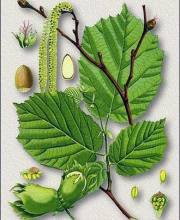
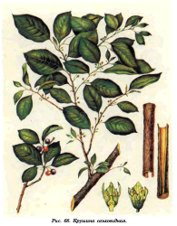
2. Compare bell and buttercup
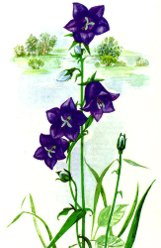
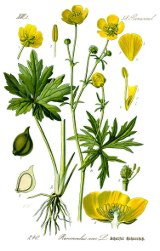
-
Than like crows and magpies?
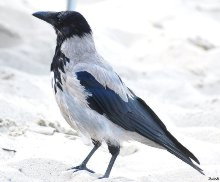
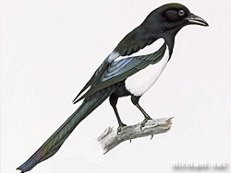
Than similar oriole and the cuckoo?
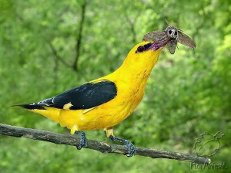
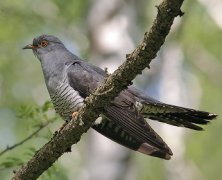
Appendix 3
